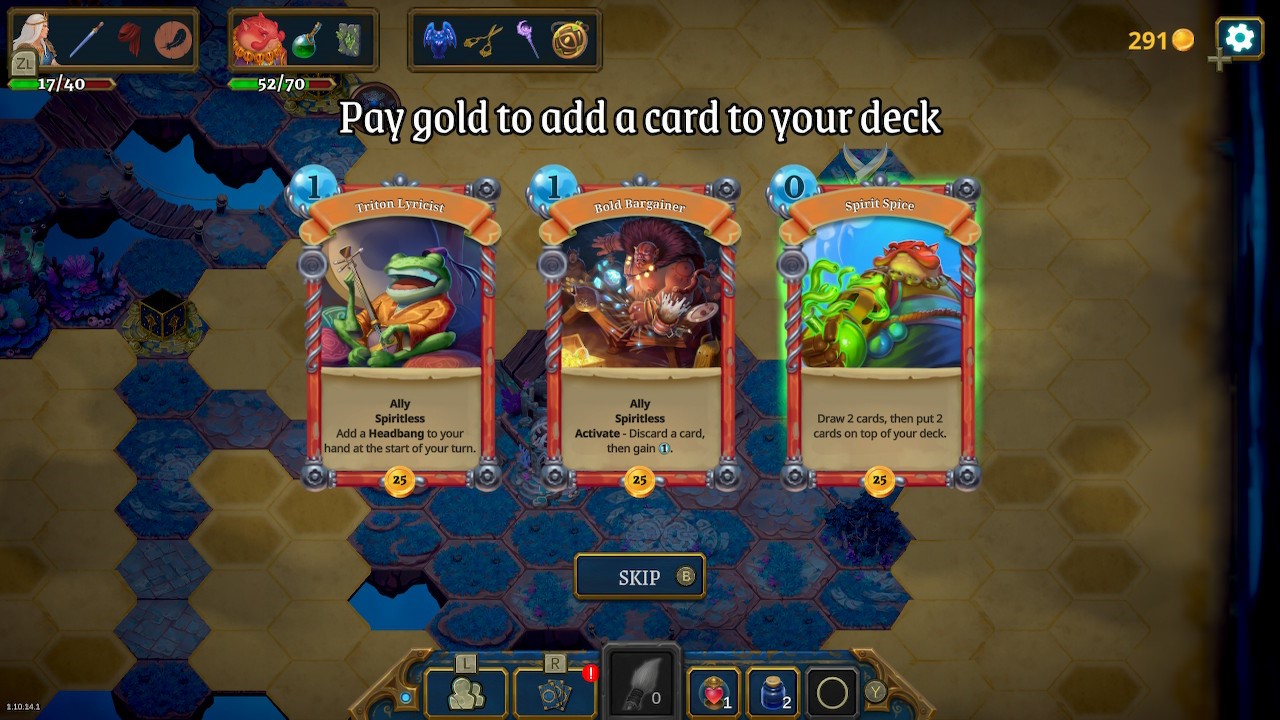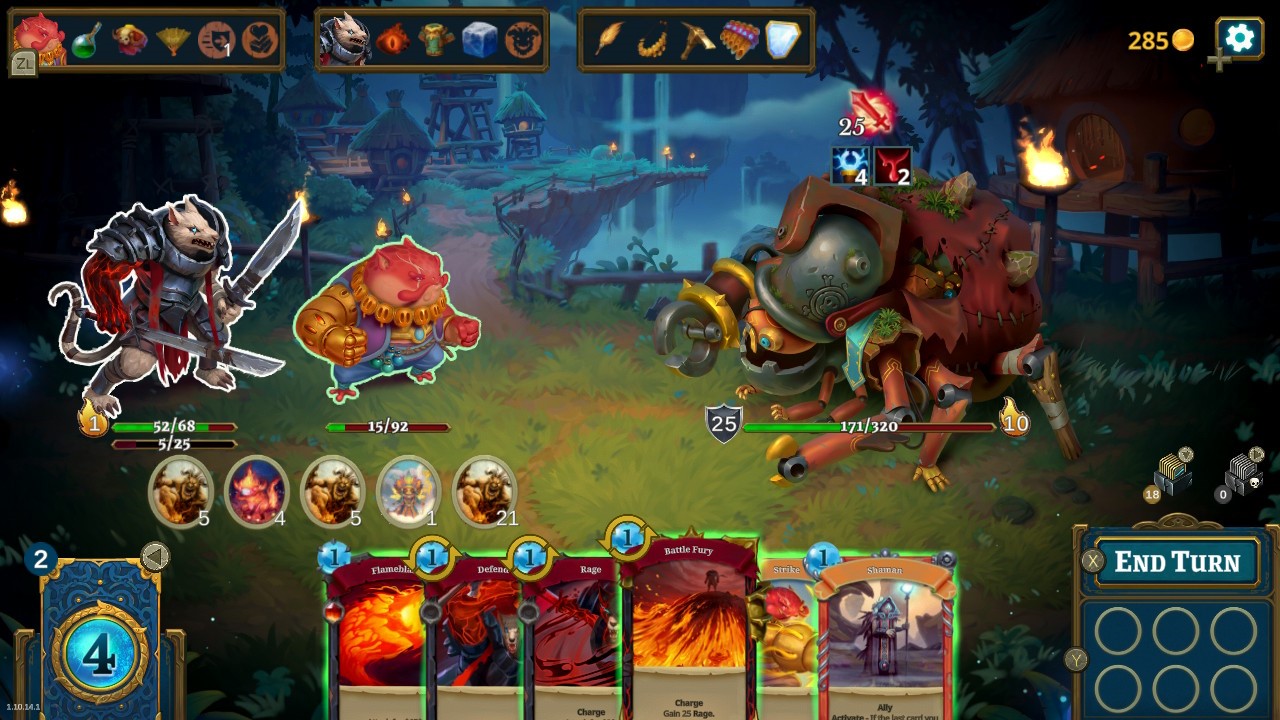Best get your library card out to chase down Roguebook.
I’m pretty sure I’ve mentioned on more than a few occasions that I like a nice roguelike game, regardless of the genre, and that one of my favourite subcategories is card-based roguelikes. Combining tabletop gameplay with roguelike leanings to keeps game length low whilst maintaining an addictive element is hard for me to turn down, hence why I seem to review a lot of them around here. There have been some really good options in the past few years, with a more recent contender being Roguebook, a game with some pedigree behind it thanks to involvement from Magic: The Gathering creator, and tabletop legend Richard Garfield. Last year, our Matt Fuller took a look at the PC release of the game, and enjoyed it well enough, whilst finding it somewhat lacking. Now though, it’s made the jump to console and I’ve been having a go at the Nintendo Switch release.
You and your party have been trapped in the titular Roguebook and must fight your way through the enemies that live in the pages of the book to escape. You’ll do this by selecting your two party members, uncovering and exploring the map, and collecting cards to do battle with the foes within. Much like many of its peers, there’s not a huge story here, with it being more of a mechanically focussed game, and it does have some nice mechanics beyond what you’d normally find in the genre.

There’s a map you can explore, but only by using limited resources to reveal parts of it first. Perhaps you’ll find useful items, or maybe you’ll find more battles to participate in. I liked that there was a chance to explore more freely in Roguebook than in the likes of Monster Train or Doors of Insanity, but your map revealing resources won’t actually get you very far, and there’s a reasonable chance that you won’t find anything useful. Yes, that’s pretty standard for a roguelike, but it did tend to push me towards things I knew were there, rather than wanting to actually explore.
When in battle, the structure is very much like Slay the Spire, with you knowing how your enemy will act and you having a hand of cards and limited energy to play them to respond appropriately. Enemies hit hard, and I found myself needing to play quite defensively as opportunities for healing were rare. This led to a lot of the battles taking far longer than I’d like them to, and I missed the pace that other games of this style would have. A further issue with the pace is how you are rewarded with powerful buffs for having a large deck to draw from. Most deckbuilders are about slimming down your deck to allow you to draw the cards you want more frequently, but here you’re expected to have more cards, meaning battles could take longer still as I’d wait for good cards to come out. The alternative is to forgo the buffs for a quicker deck, but this feels like leaving behind a powerful bonus. I wasn’t a fan of this approach.

I did like the fact that you could switch your party members around mid-battle to allow different characters to absorb the hits or gain benefits. Putting your defensive hero in the firing line when a big attack is coming your way is a neat way of mixing up the formula, but again this does lead to a slower pace. I feel like a larger hand size and energy pool would lead to more exciting gameplay as you could play around with positioning in combat far more rather than having to pop off an attack before swapping back to your defender to pile on the barriers.
With all this said, it’s nice that Roguebook does enough to differentiate itself from the pack, with characters having wildly different cards that can be used, and the ability to attach gems to cards to change their utility. There’s also some lovely art work in the game — although the characters and creatures are fairly generic — and some nice voice work to boot. Unfortunately the Switch release is a bit weak. There were numerous input delays when I was playing in handheld mode as I waited for the game to catch up with what I’d told it to do, and the load times during portable play are longer than they should be considering the visual complexity of the game. And quite why there isn’t touch screen functionality is beyond me, as these sort of games would be well suited to it — but I find this is something underutilised on the Switch anyway. Playing in docked mode does alleviate some of these concerns somewhat, although there was still a delay when selecting a card and a target. On the plus side, the controls are well laid out, and everything feels quite logical when in action. This is clearly primarily designed for PC though, and unlike many other card-themed roguelikes that have made the jump from PC to console, this doesn’t feel as though it plays nearly as well as it would with a mouse.

I don’t want to be too down on Roguebook, as it certainly is a solid entry into this subgenre, but there are a lot of really good deckbuilders that offer enough of a unique spin to make them a better option. I’ll be playing this on and off once I’ve grown tired of some of the alternatives, but I don’t think it’s going be the one that kicks my Monster Train habit.
Roguebook is available now on PC, Xbox, Playstation, and Nintendo Switch.
Comments are closed.